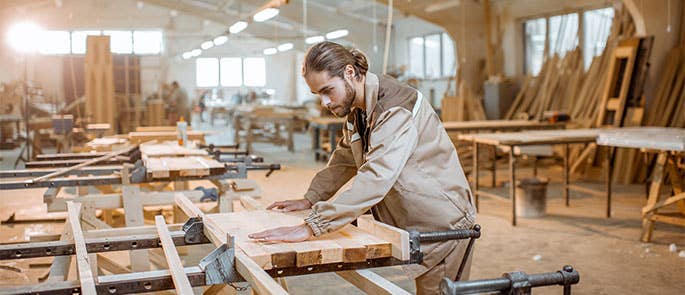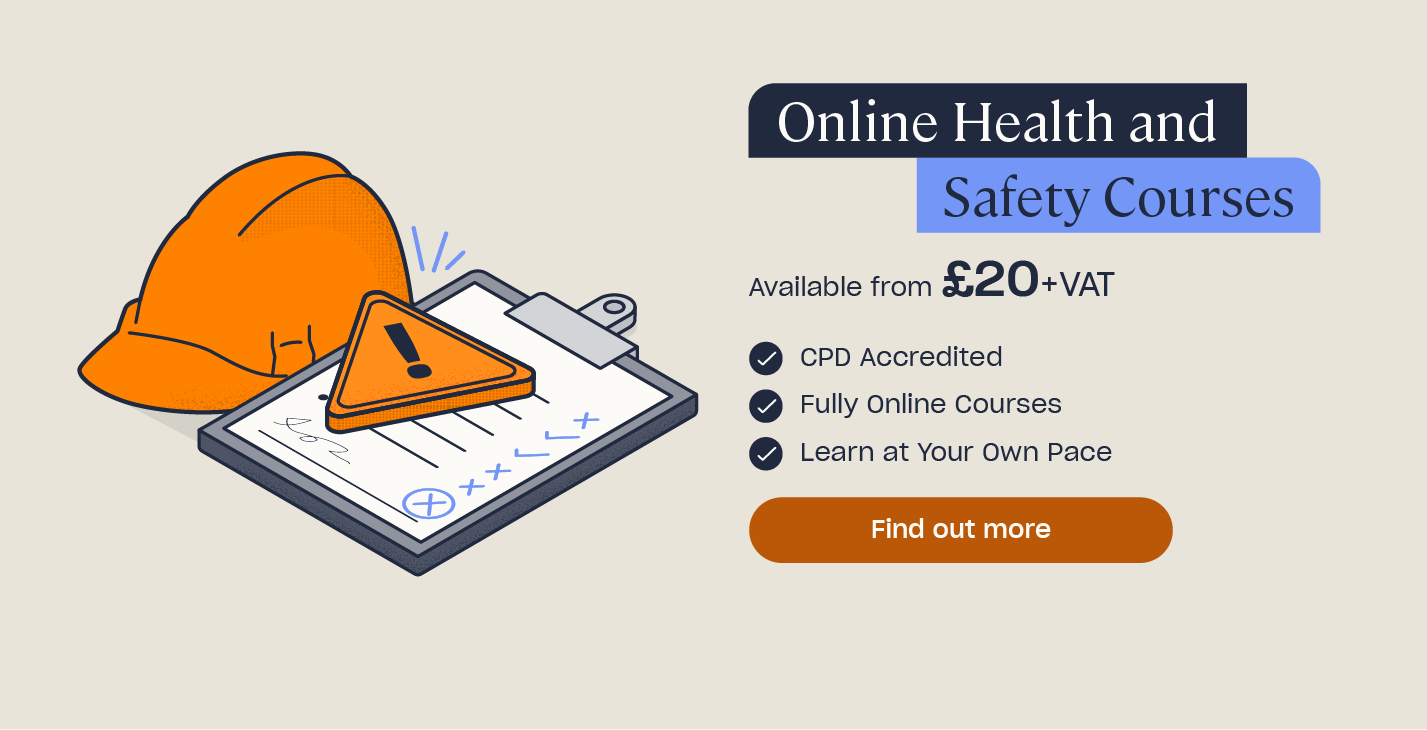How to Become a Carpenter
Are you interested in becoming a carpenter? Perhaps you’re a school leaver looking to start your first career or are interested in becoming a carpenter’s apprentice, or maybe you’re already in a job role and want to make the move to become a carpenter. Whatever your circumstances, carpentry is a popular profession and a trade that can make you a lot of money, whether it’s working as part of a building team or setting up as a self-employed tradesperson. In this article, we’ll give you some guidance on what skills and qualifications you need to become a carpenter and how to use these to get a job as a carpenter.
What Does a Carpenter Do?
A carpenter, also known as a joiner or woodworker, is someone who works with wood to create furniture, structures and/or fittings for buildings. Carpenters may specialise in a particular area, like furniture restoration, or they may work with wooden structures of all types on a construction site.
Carpenters are a vital component of most building sites as they help to design, cut and construct the wooden parts of buildings, ensuring they are safe and structurally sound. Alongside construction sites, carpenters can also work in a variety of locations, including private homes, businesses and in workshops.

Typical carpentry tasks and duties include:
- Measuring, cutting, shaping and fitting all types of timber.
- Cutting and shaping doors, window frames, skirting boards and floorboards.
- Installing floorboards, partition walls, roof timbers and joists.
- Installing doors, cupboards and staircases.
- Installing new kitchen units and shelving.
- Fitting interiors to shops, offices, restaurants, etc.
- Restoring heritage furniture or historical buildings.
- Assembling both fitted and free-standing furniture.
- Building shuttering – wooden supports – for concrete.
- Assembling frames for roads and bridges.
- Building stages and sets for films, TV or theatres.
- Drawing technical drawings.
- Understanding the different types of wood and what they’re used for.
What Qualifications Do You Need To Be a Carpenter?
There’s no specific role into carpentry, so the route you take depends on your own preferences and those of the employer you’d like to work for. In general, to be a carpenter you’ll need either an apprenticeship, an NVQ from a relevant college course or a City and Guilds qualification, plus a valid CSCS card.

Getting into carpentry through an apprenticeship or college course is the most common entry route:
- Carpenter College Courses – to take a college qualification, you’ll first need at least two GCSEs at grades 9 to 3 (A* to D), or equivalent, for a level 2 course or at least four GCSEs at grades 9 to 4 (A* to C), or equivalent, for a level 3 course or T level. You can then look to take a carpentry-related college qualification such as a Level 2 or 3 Diploma in Bench Joinery, a Level 2 or Level 3 Diploma in Site Carpentry or a T Level in On Site Construction.
- Carpenter Apprenticeships – a carpentry apprenticeship allows you to combine hands-on work experience with theoretical knowledge. To start an apprenticeship, you’re likely to need at least two GCSEs in English and Maths (or five GCSEs at grades 9 to 4 (A* to C), or equivalent, for an advanced apprenticeship). You could take an apprenticeship in carpentry and joinery, architectural joinery, on-site carpentry, wood product manufacturing or furniture making, to name a few examples.
- City and Guilds Carpentry Diplomas – City and Guilds offer levels 1, 2 and 3 diplomas in site carpentry, bench joinery, shopfitting joinery and wood machining.
To become a carpenter on a construction site, you’ll also need a valid Construction Skills Certification Scheme (CSCS) card or equivalent, so bear in mind the time and costs associated with obtaining a card if you’re aiming to pursue this line of work.
Once you’ve gained some experience working as a carpenter, you can then look to progress your carpentry career in a role such as a site supervisor, construction project manager, contracts manager, heritage restorator or construction estimator. You might even choose to set up your own carpentry business after working a few years for someone else.
What Skills Do You Need To Be a Carpenter?
There are various attributes, including both physical skills and soft skills, that will help you to become a carpenter. Some of these skills you may possess naturally and others you may want to learn through extra training.

The skills you need to be a carpenter include:
- Verbal communication skills.
- Good attention to detail.
- Ability to work alone and with others as part of a construction team.
- Ability to use your initiative.
- Problem-solving skills and critical thinking.
- Good design skills and blueprint knowledge.
- Maths skills.
- Computer skills.
- Accuracy in cutting and measuring.
- Good dexterity in your hands.
- Physical strength and good stamina.
- Good knowledge of the building and construction industry.
- Understanding of health and safety law.
- Ability to use and maintain machines and tools.
- Ability to repair machines and tools.
You’ll also need the basic carpentry skills learnt on a carpentry qualification, apprenticeship or college course. For example, using hand tools, cutting basic joints, fitting skirting boards, fitting locks and fitting doors and door frames.
How to Get a Job as a Carpenter
If you’re sure the role of a carpenter is for you, then the National Careers Service is a good place to start if you’re looking to find an apprenticeship or training course related to carpentry.
The Government’s Find a Job service can help you look for available carpenter jobs in your area, or check out our article on other roles in the construction industry to learn more about other career options that you may wish to consider alongside being a carpenter.
Before you apply for a role, ensure your CV is up-to-date and highlights your carpentry qualifications and relevant skills. A well-written, professional job application and CV can make all the different when applying for a carpentry role within an organisation. See our article on How to Write a CV for tips on how to write one and what to include.
Becoming a carpenter is a valuable career choice, as carpentry skills are always in demand on construction sites, in private homes and in workshops. If a job as a carpenter is an attractive role for you, then ensure you’ve looked into obtaining the relevant qualifications and developing the related skills in order to pursue your dream job in the trades.
Further Resources:
- Online Health and Safety Courses
- How to Become a Construction Worker
- Careers in Construction Industry: Opportunities and Roles
- How to Become a Roofer
- What is Asbestos?
- Asbestos Awareness Course











